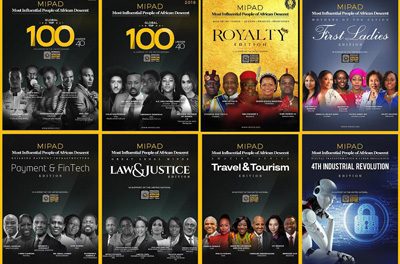
Offbeat 16 January 2015
 Sometimes it feels like the struggle has passed entirely unnoticed, with the possible exception of the two weeks before the election and the two days after it, when all the fatcats went around calling all the other fatcats ‘comrade’. The only traces of that time that seem to remain now, are discreet bumper stickers on expensive 4X4s and, from what I hear, a bunch of people trawling for high level jobs on the basis of whatever political favour they can muster.
Sometimes it feels like the struggle has passed entirely unnoticed, with the possible exception of the two weeks before the election and the two days after it, when all the fatcats went around calling all the other fatcats ‘comrade’. The only traces of that time that seem to remain now, are discreet bumper stickers on expensive 4X4s and, from what I hear, a bunch of people trawling for high level jobs on the basis of whatever political favour they can muster.
I liked the word ‘comrade’, once upon a time. It levelled things down to a commitment to hope, that could stand on its own, rather than the current preppy Namibian election concept. It had an egalitarian feel to it. But the word ‘egalitarian’ seems to have fallen completely off the radar. My best guess is that the concept doesn’t register, but also that it is probably too hard to spell.
Decades have passed since those days when ‘comrade’ meant something to me. Nowadays, taxi drivers and a couple of barmen call me ‘boss’. That always provokes a shudder, even though it has been patiently explained to me that it is some kind of term of respect. It reminds me of the idea of ‘baas’, something that I didn’t like then and still don’t.
I get weird looks when I ask what I have done to earn that respect? Apparently it is just because I exist, same as everyone else. It’s one step up from the repulsive and threatening ambition of ‘my laarnie’, but slightly friendlier than the anally retentive ‘sir’ to which I usually reply that I am not a teacher.
Perhaps, if everyone is a boss, egalitarianism does exist, except for women. Perhaps ‘miesies’ will do for them.
I have been called a lot of disturbing things in my life. In the bad old days, before there was even an inkling of breaking down the barriers of skin colour I was alternatively ‘rockspider’ and ‘soutie’, the legacy of the English and Afrikaans divide. Speaking English but having an Afrikaans surname gave me a fairly useful early perspective on not belonging anywhere, and staying in during afternoons, to avoid fights on the street.
The rise of multiracial schools in the Eighties enriched me with the perspective of being a ‘boertjie’, and I seem to remember being a ‘mulungu’, ‘makukunye’, ‘volksveraaier’, ‘kommunis’, ‘terroris’, ‘wit hotnot’ and ‘k-boetie’ as well. Heady stuff.
I absorbed all of those words, listened to their scope, and brushed them aside without getting into fights. I understand that people need to define other people, especially the sort who move their lips and follow sentences with fingers when they read. Yet I struggle with dark anger whenever I hear the word ‘boss’, no matter how friendly the context. I work hard to get things right and I want respect for that. And even if that respect was understood, I still don’t want to be called ‘boss’.
And no, I am not an ‘oom’ either, and especially if we are not immediately related. The amount of inbreeding to achieve that biological status would be staggering, far more than the morality of various churches would be prepared to admit.
How should I define myself then when the only terms I have been given are nakedly racist and designed to exclude me? There is an intricate matrix of what must be hundreds of possible classifications, aside from the official ones, and not one of them makes me comfortable.
I toy with the word ‘outsider’ from time to time. It comes closest, even though it is not true by virtue of the fact that I belong to Namibia. To my mind being an outsider means I can sit on the periphery of anywhere, and walk away from everywhere when the prejudice gets irritating. Maybe that could classify as yet another group, and earn a seat in the National Assembly with a bakkie to go with it.
Yet the idea of having to be an ‘outsider’ because I am not an insider anywhere else angers me as well.
Here’s my personal manifesto. I am not a skin colour. I am not a language. I am not a religion. I am not a tribe. I am comfy to be myself, just Pierre.
Don’t call me ‘boss’.










































